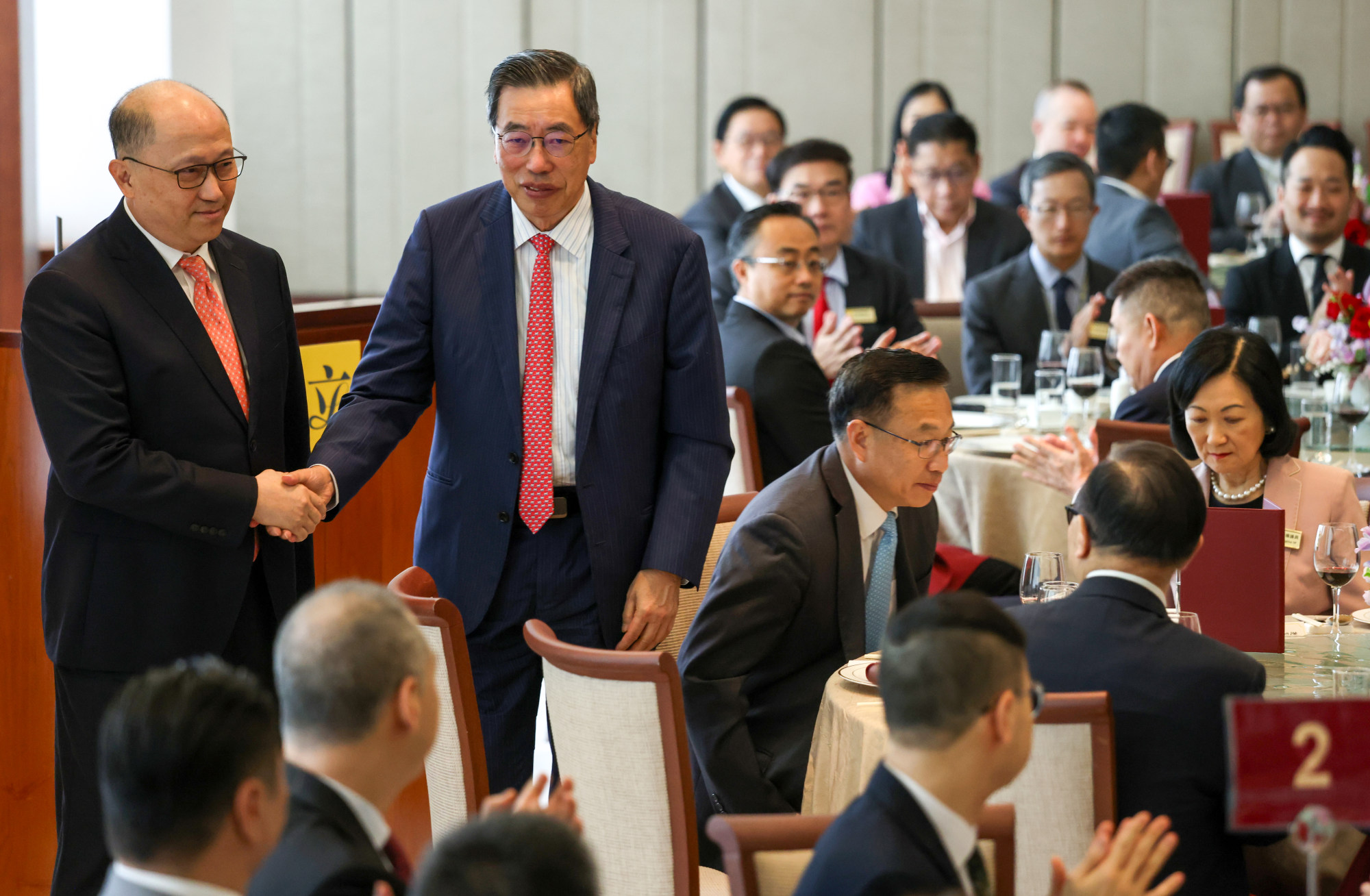‘Superconnector’ Hong Kong should shift to ‘super moneymaker’: top Beijing official in city
Other targets include protecting the rule of law, maintaining internationalism, safeguarding national security and maintaining the city’s unique culture.
“[Hong Kong] should leverage the support from the mainland and tap into the country’s modernisation. It should harness its international ties, turning alignment with global market rules into development efficiency,” he said.
“[Hong Kong] should also capitalise on benefits brought by the two systems, turning its superconnector role into a super moneymaking one.”
The Beijing official highlighted the city’s rule of law in his 22-minute speech in Mandarin, saying the principle should be cherished “the same way caring for one’s eyes.”
The resignation of two British judges – Jonathan Sumption and Lawrence Collins – from Hong Kong’s top court had cast a shadow over the city’s rule of law, with Sumption expressing that the principle was under threat.
The liaison chief noted the rule of law was the foundation for building Hong Kong’s excellent business environment while the common law system was the legal bedrock of the city’s status as international financial, trade and shipping centres.
“We must cherish and protect Hong Kong’s rule of law just as we would for our own eyesight. We must skilfully utilise the thinking and means that are in line with the rule of law to resolve governance challenges,” he stated.
Zheng called on Hong Kong to better integrate with the mainland as one way to achieve the goal of maintaining its internationalism.
He attributed this to Hong Kong’s role as a gateway for many foreign countries seeking to tap into China’s rapid modernisation.
“By integrating with the country, Hong Kong can build better ties with the international community and embrace the world,” he added.
Zheng stressed that closer ties with the mainland would not marginalise Hong Kong on the world stage, nor would it result in the city becoming less distinctive compared with other mainland cities.
The Beijing official also expressed his hope for the city to “wield the sharp sword of the rule of law” and act as the guardian of national security.
Hong Kong has enacted its home-grown national security law, widely known as the Article 23 legislation, in March, which sits alongside with the Beijing-imposed one that came into effect in 2020.
Hong Kong will celebrate its 27th anniversary of returning to Chinese rule on Monday.
Zheng’s Friday speech reviewed the city’s six unchanged aspects and another six fields that underwent changes in the past 27 years, with the top liaison officer highlighting that press and speech freedoms were still protected and academic freedom well respected.

He also said the Hong Kong public had participated in various elections “enthusiastically and in an orderly manner”, and the poll results enjoyed high acceptance.
Other unchanged aspects covered Beijing’s commitment to “one country, two systems”, the high degree of autonomy, the legal and business environment, internationalism, as well as the city’s way of life.
For the changed aspects, Zheng listed more support from the central government, democratic enhancements, national security guarantees, improved governance, economic development and expanded global ties.
In his lunch with lawmakers in July last year, Zheng urged them to monitor the government but not “go overboard”, saying the best criticism should come with suggestions for improvement.
He also highlighted that his agency would continue to prioritise the strengthening of national security in “an all-round manner”, while being humble to listen to social sentiments.